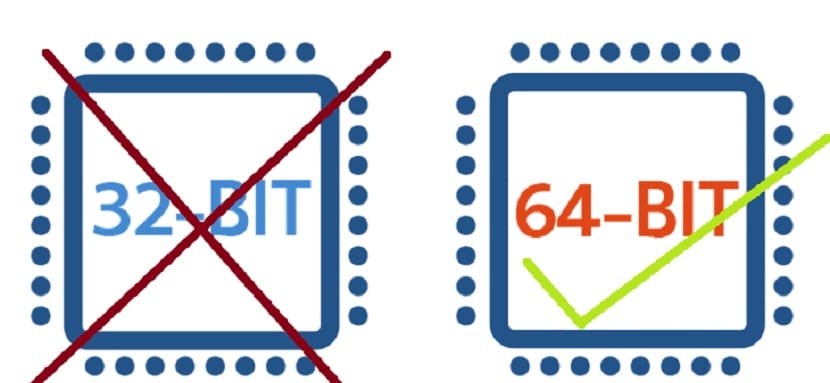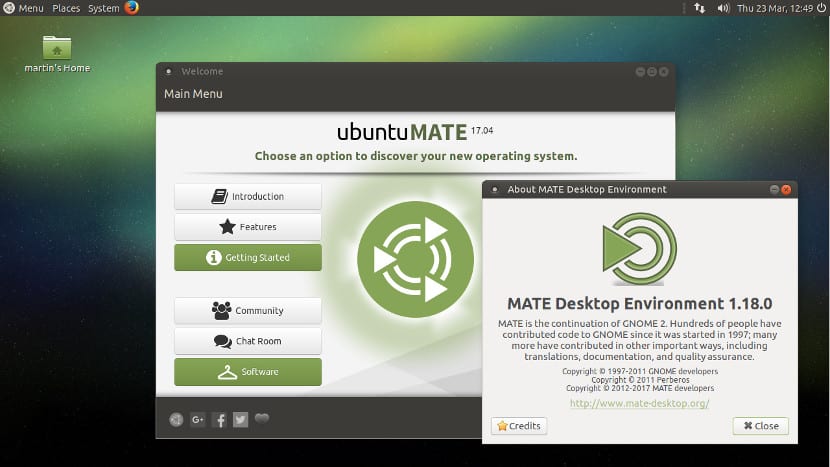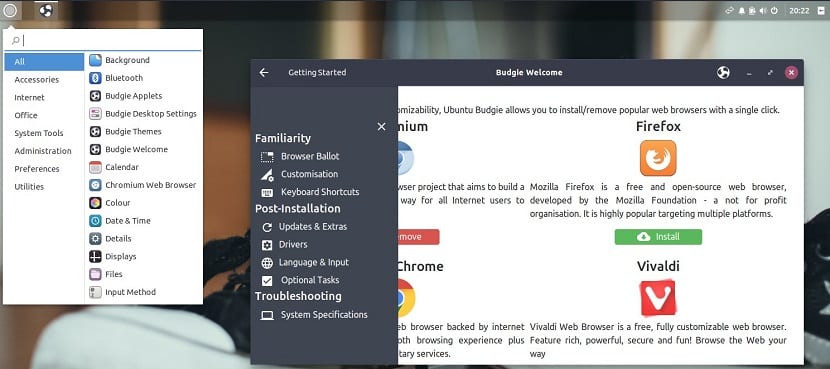
Well recently the Ubuntu Mate development leader Through a statement on the distribution's blog, he announced that the development cycle of what would become the next version of Ubuntu Mate 18.10 has started and also notifies us that they have made a decision.
Both he and his team have chosen to abandon the development of the 32-bit version for Ubuntu Mate 18.10, so this version 18.04 is the latest and will also have support directly from your team for 3 years adding another 2 years of support for important updates from Canonical.
Ubuntu Mate drops 32-bit support
Martin Wimpress Ubuntu Mate project leader tells us that this decision is It has been taken based on the demand that the support of this architecture has.

Therefore, based on the results obtained, the information shows them that less than 10% of distribution users are the ones who still use this architectureIn addition to this percentage, many choose to install the i386 images on the amd64 hardware.
In addition to the fact that the teams with this architecture where they can perform their tests for corrections and releases are limited.
On the other hand, both how your team prefers allocate the time saved by deleting i386 images (32-bit Intel) to better support ARM devices, like the Raspberry Pi.
Finally, the other data you share of their analysis are as follows:
- Application and driver vendors are (or have already) supported i386 (Intel 32-bit). Nvidia support was recently removed, Mozilla upstream only supports amd (Intel 64-bit), Google Chrome dropped i386 (Intel 32-bit) a few years ago like many others.
- The latest i386 devices (Intel 32-bit) were made 10 years ago, the audience for this architecture is decreasing.
Ubuntu Budgie declines to continue 32-bit support

The Budgie developers were the first to decline by continuing to support this architecture days before Mate's team also joined.
David Mohammed Leader of the Ubuntu Budgi development projectI simply comment that the support from his team for the next version 18.10 will no longer be given, since he says that almost all users have 64-bit computers.
LaThe words he shared were the following.
“We have had a successful Ubuntu Budgie 18.04 LTS release and are now in full planning mode for 18.10.
Similar to the decision made by Ubuntu themselves in 17.10, we have decided to focus all our efforts on producing a really good image based on the hardware that almost all of you use today. "
"Starting at 18.10 pm, we would like to focus only on 64-bit ISO."
In addition, I comment that those users who really require a 32-bit version use version 18.04 Well, this is LTS and it will be supported until 2021.
In conclusion
Sooner or later the use of this architecture would have to be put aside because with the passage of time and the huge development of new technologies, developers have to adapt to this and to the high demand.
And it is not to blame them because the market is like that, we must be in constant development and not be stuck at a single point.
The situation is simple, as ARM processors are starting to generate more demand They are cheap, the example we have with the Raspberry Pi and similar pocket computers.
Although we cannot buy the real performance between these, the difference this cost makes the difference.
There will be many who will say that this cannot be an influential point, but if you think about the limitations you have in the use of 32-bit technology and the use of ARM that offers you many more possibilities and the great projects that are they can make, the choice is why it will still have support and greater use.